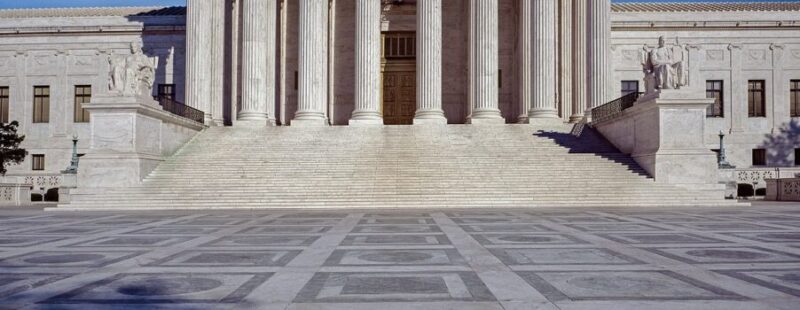SCOTUS To Decided About Charges In Riot Cases
The United States Supreme Court is set to hear arguments this Tuesday regarding a federal charge that has been used against participants in the January 6th riots at the Capitol. The charge, which carries a maximum penalty of 20 years in prison, is based on a law enacted after the Enron scandal and is typically used in cases of evidence tampering. However, in more than 350 cases related to the attack on the Capitol, federal prosecutors have applied the law to charge individuals for obstructing or impeding an official proceeding.
The decision by the Supreme Court could potentially have major ramifications for the hundreds of rioters who have already been convicted and sentenced under this statute, and for those who still have pending cases. It could also impact the charges against former President Donald Trump, who is currently facing trial for his alleged role in attempting to overturn the election results.
The case before the Supreme Court has raised questions about the scope of the federal obstruction statute and whether prosecutors have overreached in its application. Defense lawyers argue that the law is limited to conduct that destroys or tampers with evidence sought by investigators. They also warn of the potential consequences of interpreting the law broadly, stating that it could be used to target protesters or lobbyists who disrupt congressional committees.
On the other hand, the Justice Department maintains that the statute should be read as a “catchall” that prohibits any efforts to corruptly obstruct an official proceeding, including the violent disruption of the peaceful transfer of power after a presidential election. They argue that the word “otherwise” in the law’s text should be construed broadly to encompass any unanticipated methods of obstructing an official proceeding.
The Supreme Court’s decision could also have political implications, as former President Trump has made accusations of prosecutorial overreach a central part of his appeal to voters. If the Court rules in favor of the rioters, it could potentially reduce the charges against Trump and weaken the case against him.
The focus of the Court’s argument will likely be on how to properly interpret the text of the obstruction statute, specifically the word “otherwise”. The law includes a penalty for anyone who “corruptly” obstructs an official proceeding, and the case will hinge on whether “otherwise” refers to other efforts to tamper with or destroy evidence or whether it can be interpreted more broadly.
Some analysts believe that the Court, which has a majority of conservative and textualist judges, may rule against the government in this case. They point to past cases where the Court has narrowed the use of criminal statutes and expressed concern about prosecutorial overreach. However, the outcome is not guaranteed, and many legal experts believe that the Court could also side with the government in this case.
If the Court decides in favor of the defendants, it could potentially impact other cases where this specific federal charge has been applied, including Trump’s trial. However, prosecutors have maintained that their charges against Trump are still valid and that his alleged actions go beyond the actions of the rioters.
Overall, the Supreme Court’s decision in this case will have far-reaching implications for both the defendants in the January 6th riot cases and for the future use of the federal obstruction statute. It will also be closely watched as a potential litmus test for how the Court will handle issues of prosecutorial overreach and the interpretation of criminal statutes.

